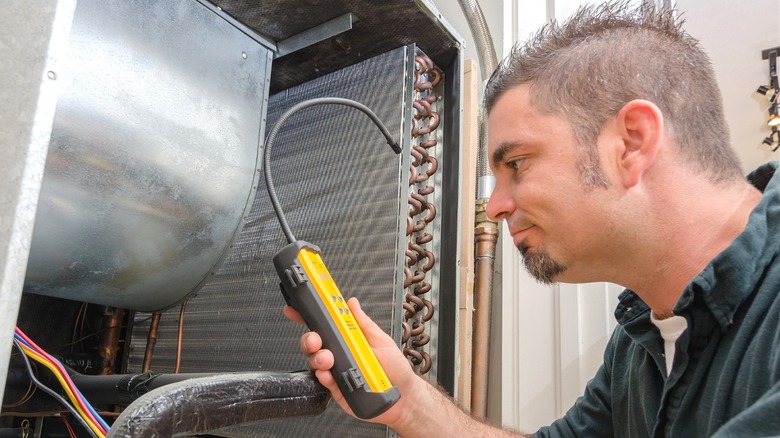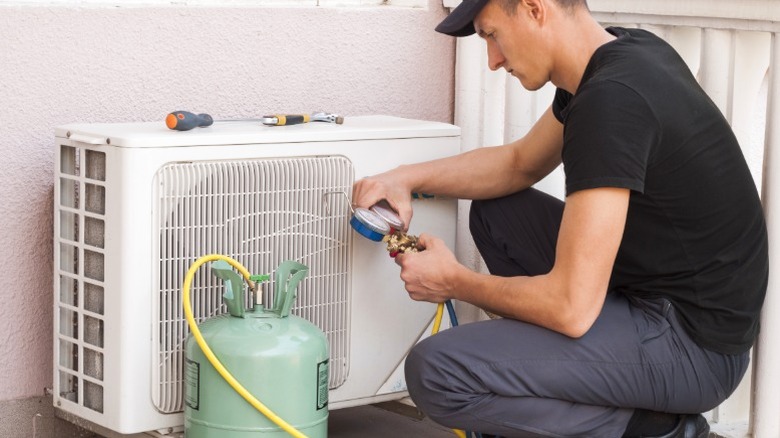How To Correctly Dispose Of Freon (& Why It Matters)
Home appliances, like air conditioners and refrigerators, sometimes cool down with freon. Freon is a trademark name, but also the commonly used name for certain types of chemical refrigerant. In 2020, under the U.S. Clean Air Act, freon was banned from being made in or imported to the United States in order to phase it out. However, many old refrigerators and air conditioners may still use freon. If you are getting a new appliance, you should know why you should not throw out your old refrigerator and what to do instead, because if your old one uses freon, disposal may be trickier than just tossing it in a dumpster. And if there's a leak or malfunction needing repairs and removal of the refrigerant, you will need a certified technician to take out and dispose of the freon to avoid harming yourself or the environment.
Because freon is one of a few common household items that are hazardous waste, it's dangerous to remove on your own. As a matter of fact, it is illegal to do so unless you are a Section 608 certified technician. If you try to remove it, you will not only break the law but also potentially expose yourself to a very dangerous chemical. Freon is tasteless and nearly odorless, so it can be difficult to know when you are exposed to it. A range of symptoms can occur depending on the exposure level, including burns, nausea, headaches, dizziness, difficulty breathing, loss of consciousness, seizures, and even death. Only certified professionals who know and follow the necessary safety precautions should handle freon.
Why and how you should correctly dispose of freon
Along with the potential health consequences, improper handling of freon can harm the environment. The primary issue is that the chemical compounds that make up freon enter the atmosphere and harm the ozone, and if it is disposed of incorrectly without proper equipment, it can readily escape into the atmosphere. This is also why a sweet smell coming from your air conditioner should concern you. While it is mostly odorless, it can have a slight aroma when leaking, and the longer you wait to fix a potential leak, the more freon can be released.
So, if you need to remove freon from your home, you will need to hire a certified technician to do so, which you may find by contacting local HVAC and appliance servicers. Hopefully, knowing the dangers of freon for human health and the environment helps you understand the price of safe removal and disposal. Costs can run around $100 but will vary depending on your location, the amount of freon you need removed and disposed of, and the accessibility of the freon in your home.
Once your freon is collected by professionals, there are a couple of things that can happen to it. First, it can be sent somewhere to be safely destroyed. The other option is to recycle the freon. To be recycled, freon is given to an EPA-certified reclaimer who assesses the contamination of the freon and cleans and filters it. Once it meets a set of standards, it can be sold for reuse as a refrigerant.

